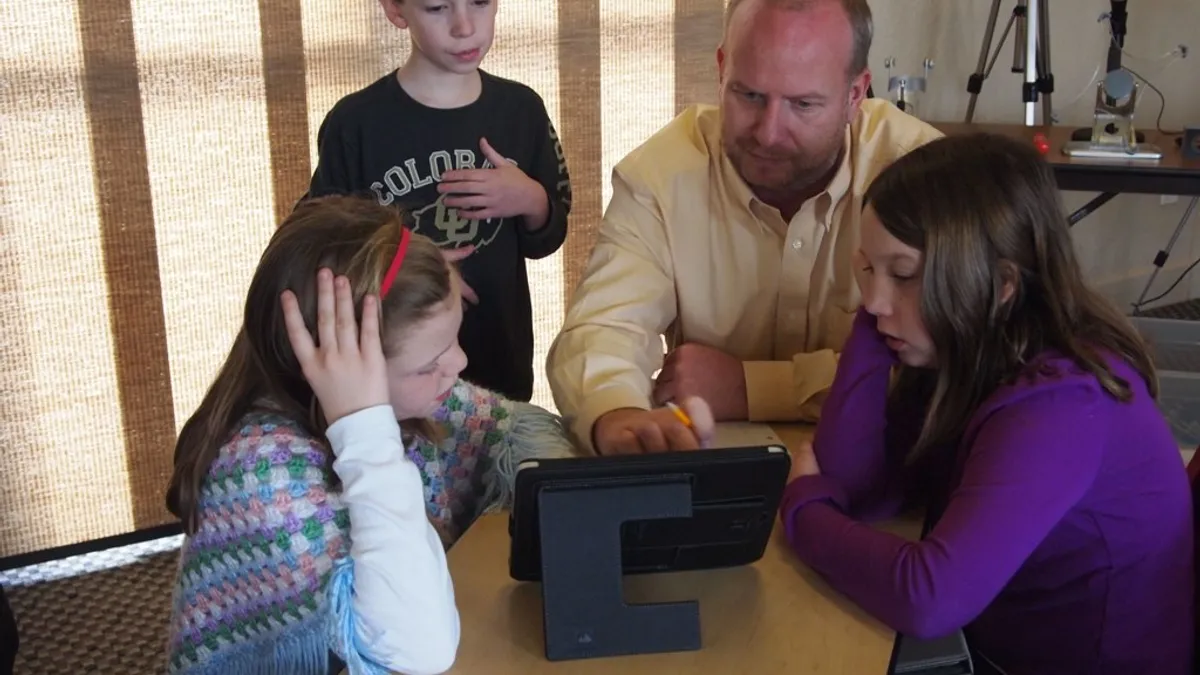Dive Brief:
- Strong network infrastructure and careful app selection and management have contributed to successful 1:1 device initiatives in school districts in Illinois, California and North Carolina.
- EdTech: Focus on K-12 reports the Huntley Community School District in Illinois offers Chromebook users an approved list of apps and is in the process of creating a web-based resource to explain FERPA compliance, terms of use and privacy policies to help people understand.
- The Charlotte-Mecklenburg school district uses Gaggle technology to monitor email and web browsing activity and identify inappropriate use, and San Diego schools use Lightspeed Systems’ Web Filter to block users from unwanted sites.
Dive Insight:
Introducing internet-enabled, digital devices into the classroom on a large scale has created a whole host of complications for IT professionals. Besides simple filtering issues, districts have to consider student privacy as teachers bring new applications into the classroom. When apps are offered for free, their creators have to be getting money from somewhere, and that can mean the sale of personal information of users.
While it can be frustrating for teachers to be constrained by an approved list of applications, that helps ensure safety of the school network and students’ private information. In California’s Tustin Unified School District, Senior Director of Technology Robert Craven says once teachers recognize the risks, they are more understanding about waiting to have new applications approved.











